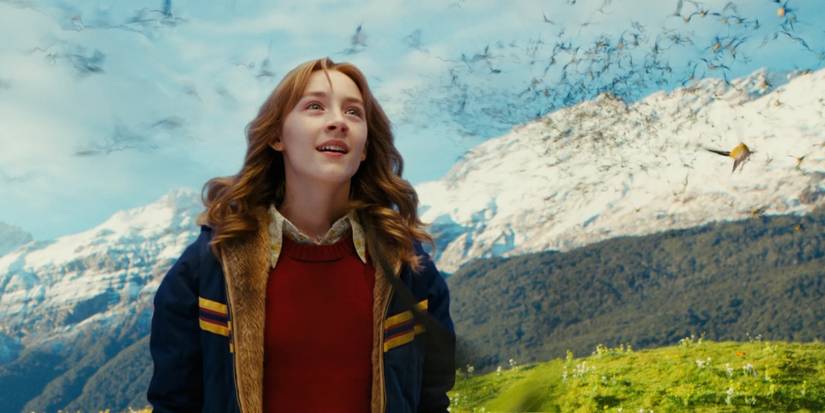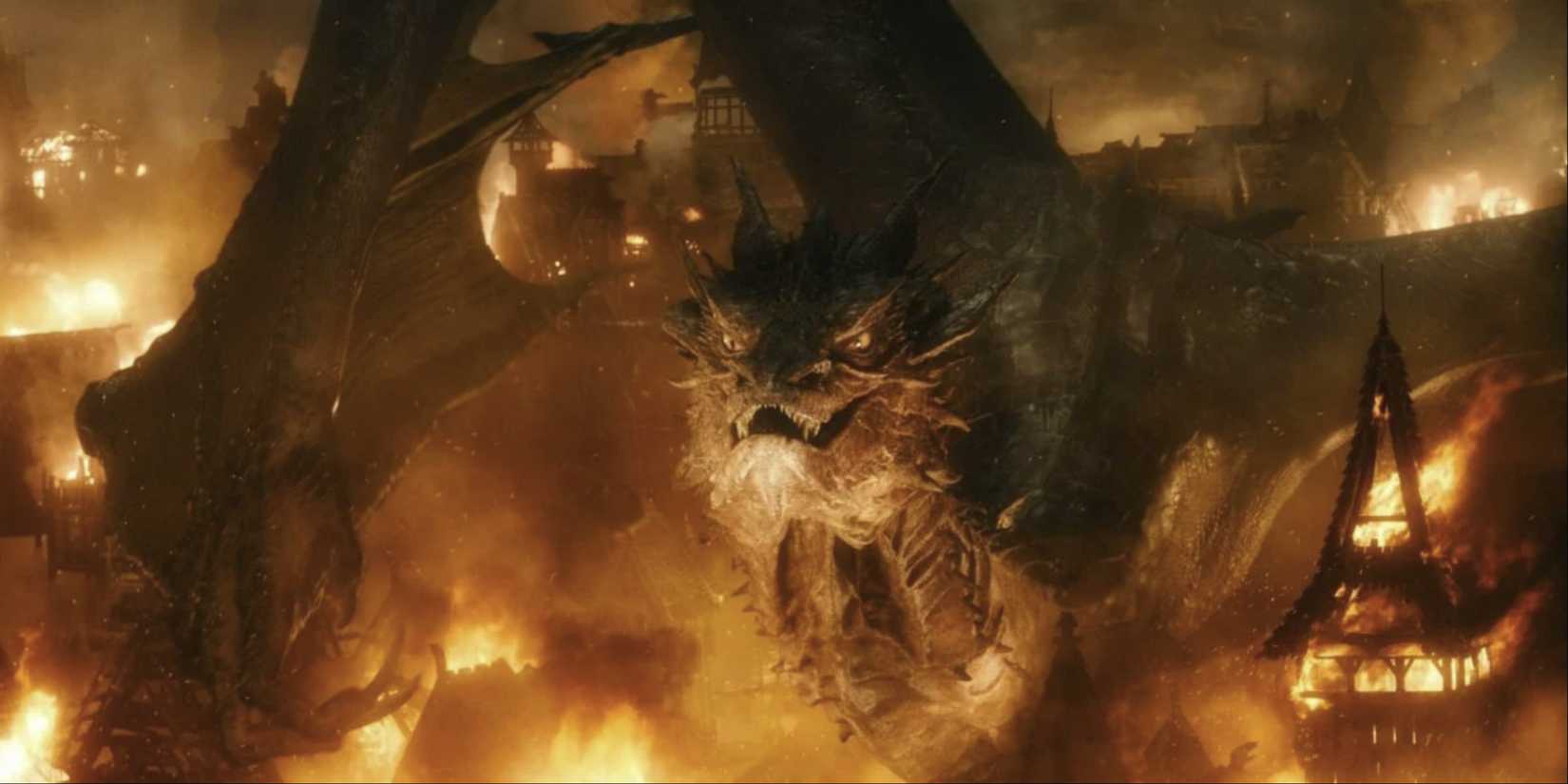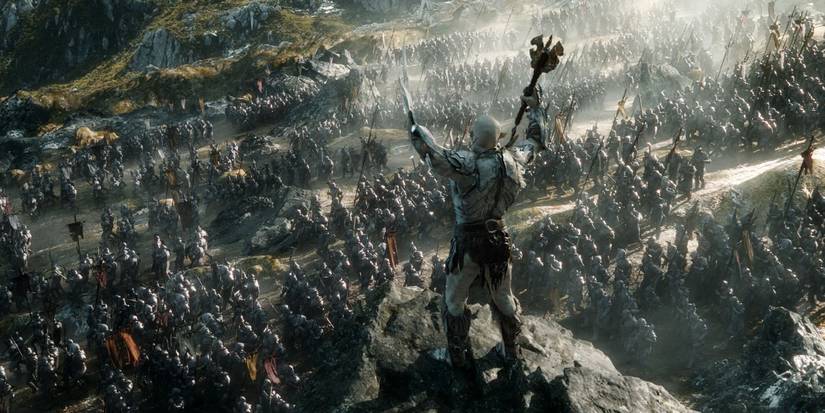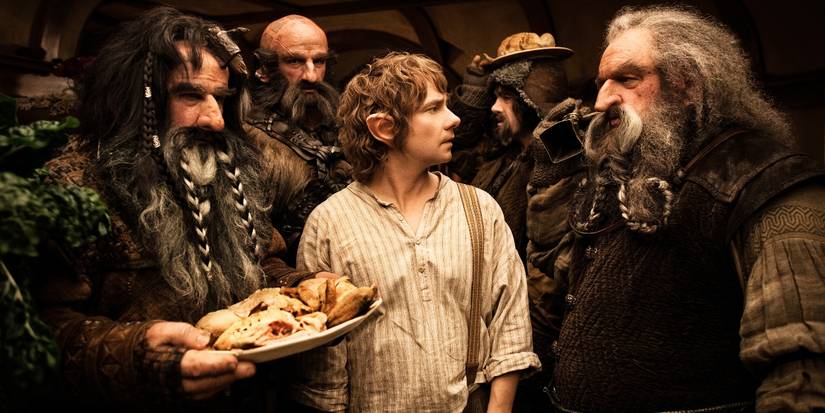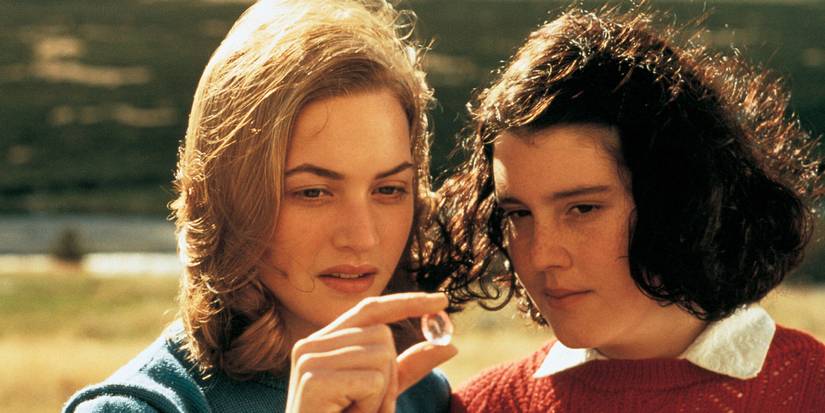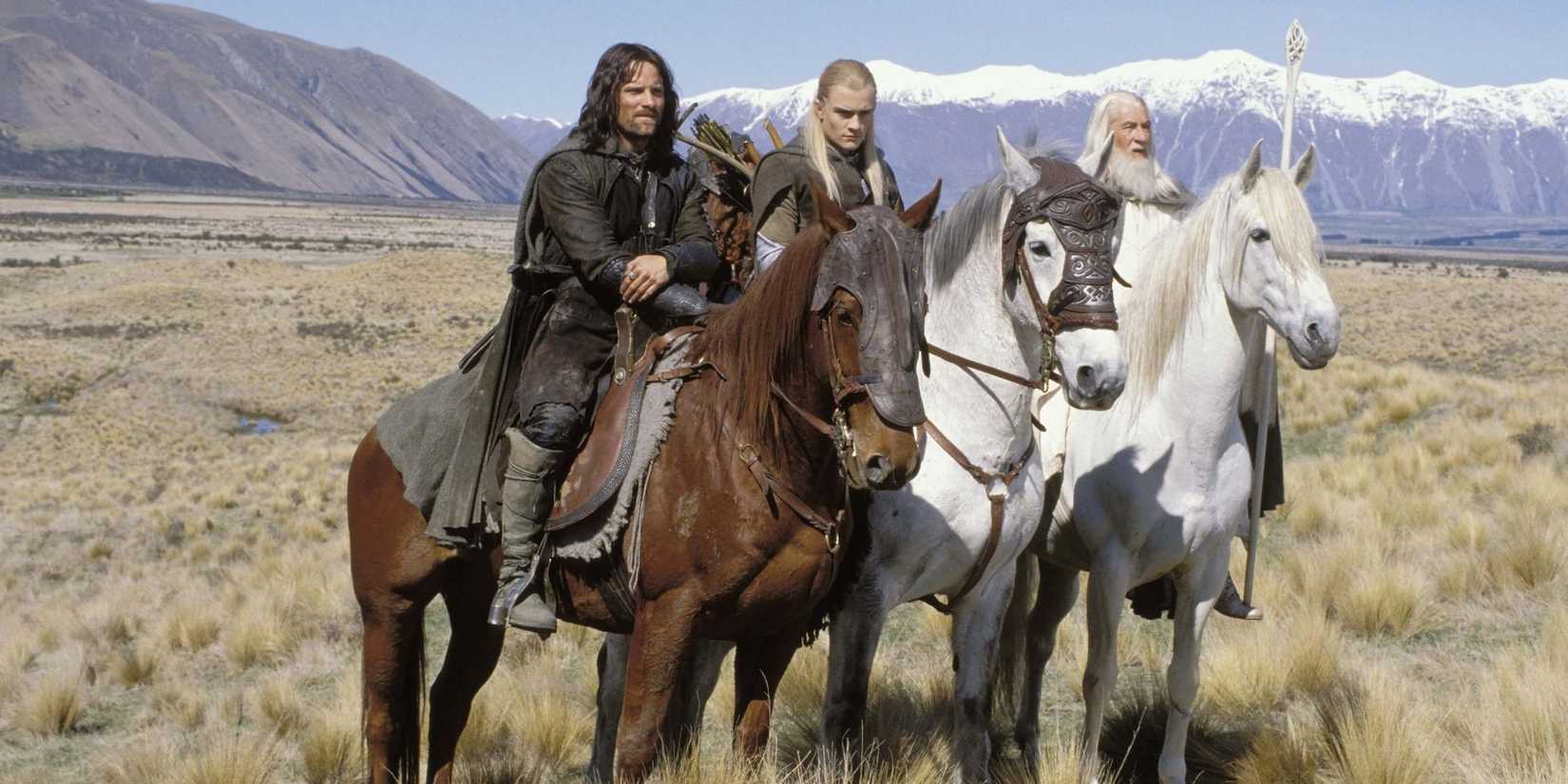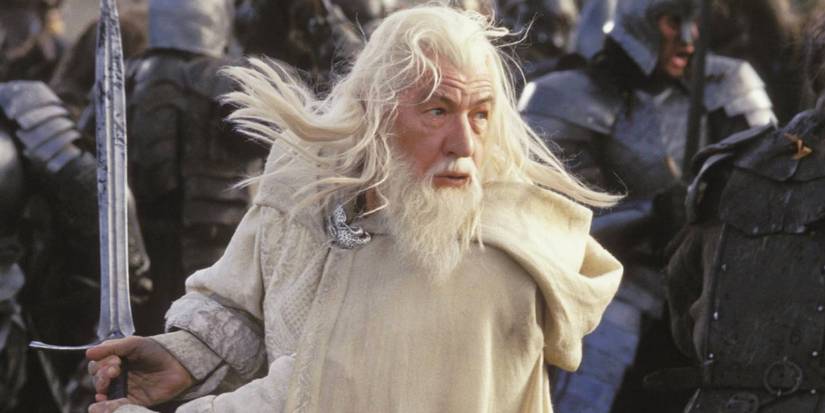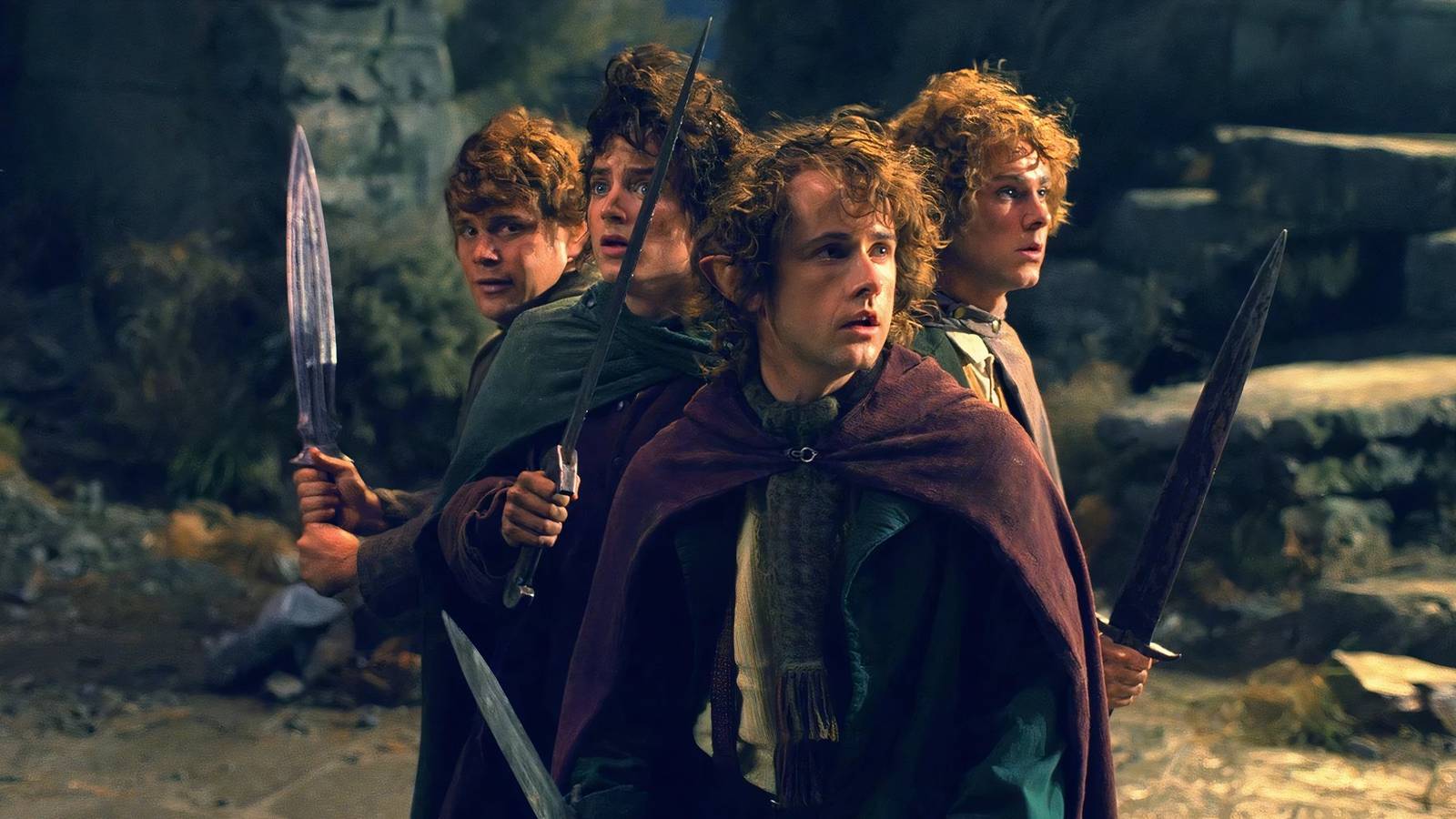
All 8 Peter Jackson Fantasy Movies, Ranked
Since he hops between genres quite a bit, it’s hard to pinpoint Peter Jackson as a “filmmaker of x movies,” but fantasy seems to be the genre he’s explored the most. That being said, not all of his fantasy movies are equally fantastical, with some being high fantasy and others being a bit more grounded, but with some fantastical elements included to set them apart from standard dramas.
If a movie of his is marked with the “fantasy” genre on Letterboxd, it’s included here, so that means the likes of King Kong (which isn’t really sci-fi, but also isn’t quite fantasy, even though it feels like maybe it should be one of them) and The Frighteners (supernatural horror/comedy) aren’t included here, even if they might be a bit fantastical. Also, you won’t be surprised by what the top 3 are, just as a heads-up.
8
‘The Lovely Bones’ (2009)
Well, to the credit of The Lovely Bones, it is something different, both as a Peter Jackson movie and just as a movie more generally. It’s far apart from the Middle-earth-set trilogies it was released between, and one of those previously alluded to “more grounded” Peter Jackson fantasy films, mostly being a crime/drama kind of story that had a fantastical element in the form of the victim of a murder watching over those in her life continue on without her.
The Lovely Bones never quite works out what sort of tone to strike, and it feels a lot longer than the 136 minutes it actually goes for.
It looks at an untimely death and the grief associated with that in a fairly uncompromising way, but then there are other parts of The Lovely Bones that feel a bit messy and muddled. It doesn’t quite work out what sort of tone to strike, and it feels a lot longer than the 136 minutes it actually goes for. There are things about it that can be appreciated, but watching it, in the moment, isn’t particularly involving or engaging.
7
‘The Hobbit: The Desolation of Smaug’ (2013)
The second of the movies in the Hobbit trilogy, and also the one where the least happens, The Hobbit: The Desolation of Smaug is another messy Peter Jackson movie. It has a few sequences that work, ultimately feeling the strongest when it works closely with the source material it was adapting, but a problem arises when there ends up simply not being that much material to work with in the first place.
The third movie has this same problem, meaning it’s not a great deal better, but The Hobbit: The Desolation of Smaug has even less of consequence happen, since at least the messy third movie felt like a climax. The Desolation of Smaug is like, 90% a side quest masquerading as the middle chapter of a trilogy, and this certainly sets it apart from the other middle chapter in a Peter Jackson-directed Middle-earth-set trilogy (more on that one in a little bit).
6
‘The Hobbit: The Battle of the Five Armies’ (2014)
There’s an argument to be made that The Hobbit: The Battle of the Five Armies is worse than the second movie in the trilogy (which shouldn’t really be a full trilogy to begin with), but here, it’s being placed above that one… just. It does feel climactic. It has that going for it. The whole thing goes big, probably even too big, but it does conclude the overall story and there are actual stakes here.
Movies #1 and #2 played out without anyone feeling like they were even in any real danger, which made The Hobbit trilogy feel less emotionally involving than the other Middle-earth trilogy, so at least there’s a bit of danger here. The Hobbit: The Battle of the Five Armies still really drags out what amounts to the last few succinct chapters of its source material, J.R.R. Tolkien’s The Hobbit, but there is stuff here. It’s still got a lot of padding, like the second movie, but the padding is ever so slightly more watchable.
5
‘The Hobbit: An Unexpected Journey’ (2012)
The Hobbit: An Unexpected Journey benefits from adapting about half of The Hobbit, while movies #2 and #3 had to sort of fight over scraps, in effect, dramatically expanding the second half of the book out into two movies. So, that makes it the best of the bunch, even if it’s still lacking a bit when it comes to stakes. It gets the story off to a decent enough start, at least, and feels like it actually gives a character arc to Bilbo, the titular Hobbit.
Therein lies a problem for the next two movies, though: there’s not much to do with Bilbo, as a character, after this point. If the trilogy had instead been a duology, maybe things would’ve fared a little better, but the whole thing is pretty scattershot and heavily flawed, in hindsight. Hey, it’s a return to Middle-earth. Ian McKellen is there, as are some other familiar faces. There’s comfort in that, and it felt fun to be back, to some extent, back in 2012, but then the other two movies sort of sour enjoyment you might otherwise get from An Unexpected Journey nowadays.
4
‘Heavenly Creatures’ (1994)
Before 1994, Peter Jackson mostly stuck to the horror and comedy genres, with Bad Taste, Meet the Feebles, and Dead Alive maybe even feeling a bit like a thematic/genre trilogy, even if Meet the Feebles isn’t quite as full-on with its horror elements. That ensured Heavenly Creatures stood out, feeling a bit more mature and thematically ambitious than what he’d done before; maybe his first “serious” (or at least non-comedic) film.
This can possibly be compared to The Lovely Bones, too, in the sense that the fantastical elements are downplayed and the film is more of a drama, but Heavenly Creatures is different in the sense that it’s actually good. It might only be ranked just ahead of The Lovely Bones and The Hobbit movies here, but it is a significant step-up in quality to those, but then the three movies ahead of it represent another large step forward in quality, since they’re… you know…
3
‘The Lord of the Rings: The Two Towers’ (2002)
As the middle chapter of The Lord of the Rings, technically, a bit less happens in The Two Towers than in the other two movies, but it’s still absolutely essential and pretty damn jam-packed with stuff happening. It ups the stakes and spectacle, expanding things from being about a journey undertaken by a small group to destroy a Ring to being about… well, it’s still about destroying that Ring, but also, the sense of there being a full-on war for the fate of Middle-earth really starts to be felt here.
The Lord of the Rings: The Two Towers is plenty ambitious on a technical front, especially when it comes to Gollum being a big part of this one, and then it culminates with an all-time great action/battle sequence, too. You’re really spoiled for choice when it comes to The Lord of the Rings if this is technically the worst one, because it’s still startlingly close to perfect.
2
‘The Lord of the Rings: The Fellowship of the Ring’ (2001)
Kicking off the trilogy with style, all the while also feeling like a pretty much perfect fantasy movie, here’s The Lord of the Rings: The Fellowship of the Ring. And it’s hard to know what else to say about it, at this stage. Obviously, it’s great, and it showed right from the start – or at least heavily suggested – that the entire trilogy was going to be something special, and that Peter Jackson was the right person to direct this particular adaptation.
There’s so much more that happens beyond The Fellowship of the Ring, in the sense of the conflict getting bigger and the battles grander, but this film starts the trilogy with such confidence, and with so much emotion right from the jump, too. It’s hard to call it truly inferior to the third movie, too, so consider these two movies at the top to be on pretty much equal footing.
1
‘The Lord of the Rings: The Return of the King’ (2003)
So, yes, the other pretty much perfect entry of The Lord of the Rings trilogy is The Return of the King, AKA the one that won all the Oscars. The wins for Best Picture and Best Director are sometimes considered wins for the trilogy as a whole, but also, if Academy voters and other people did want to highlight this one as the best of the bunch, that would be fair enough.
It’s the biggest for sure, and the most action-packed, all the while knowing when to slow things down a little, especially right near the end, for the most emotional impact possible. Catharsis is what The Lord of the Rings: The Return of the King inevitably offers most of all, even beyond the spectacle and battle sequences. It’s a technically remarkable movie, even 20+ years on from its release, and it concluded the trilogy just as well as The Fellowship of the Ring started it.

